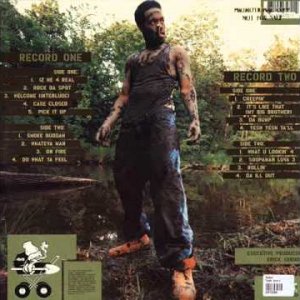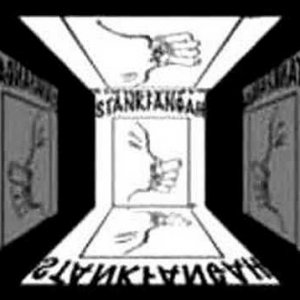The Long Run
Friends Say Drugs Played Only Bit Part for Obama
Max Whittaker for The New York Times

Barack Obama, then known as Barry, in a 1978 senior yearbook photo at the Punahou School in Honolulu. At Punahou, a preparatory school that had few black students, he talked with friends about race, wealth and class.
Nearly three decades ago, Barack Obama stood out on the small campus of Occidental College in Los Angeles for his eloquence, intellect and activism against apartheid in South Africa. But Mr. Obama, then known as Barry, also joined in the party scene.
Years later in his 1995 memoir, he mentioned smoking “reefer” in “the dorm room of some brother” and talked about “getting high.” Before Occidental, he indulged in marijuana, alcohol and sometimes cocaine as a high school student in Hawaii, according to the book. He made “some bad decisions” as a teenager involving drugs and drinking, Senator Obama, now a presidential candidate, told high school students in New Hampshire last November.
Mr. Obama’s admissions are rare for a politician (his book, “Dreams From My Father,” was written before he ran for office.) They briefly became a campaign issue in December when an adviser to Senator Hillary Rodham Clinton, Mr. Obama’s chief Democratic rival, suggested that his history with drugs would make him vulnerable to Republican attacks if he became his party’s nominee.
Mr. Obama, of Illinois, has never quantified his illicit drug use or provided many details. He wrote about his two years at Occidental, a predominantly white liberal arts college, as a gradual but profound awakening from a slumber of indifference that gave rise to his activism there and his fears that drugs could lead him to addiction or apathy, as they had for many other black men.
Mr. Obama’s account of his younger self and drugs, though, significantly differs from the recollections of others who do not recall his drug use. That could suggest he was so private about his usage that few people were aware of it, that the memories of those who knew him decades ago are fuzzy or rosier out of a desire to protect him, or that he added some writerly touches in his memoir to make the challenges he overcame seem more dramatic.
In more than three dozen interviews, friends, classmates and mentors from his high school and Occidental recalled Mr. Obama as being grounded, motivated and poised, someone who did not appear to be grappling with any drug problems and seemed to dabble only with marijuana.
Vinai Thummalapally, a former California State University student who became friendly with Mr. Obama in college, remembered him as a model of moderation — jogging in the morning, playing pickup basketball at the gym, hitting the books and socializing.
“If someone passed him a joint, he would take a drag. We’d smoke or have one extra beer, but he would not even do as much as other people on campus,” recounted Mr. Thummalapally, an Obama fund-raiser. “He was not even close to being a party animal.”
Mr. Obama declined to be interviewed for this article. A campaign spokesman, Tommy Vietor, said in an e-mail message that the memoir “is a candid and personal account of what Senator Obama was experiencing and thinking at the time.”
“It’s not surprising that his friends from high school and college wouldn’t recall personal experiences and struggles that happened more than twenty years ago in the same way, and to the same extent, that he does,” he wrote.
What seems clear is that Mr. Obama’s time at Occidental from 1979 to 1981 — where he describes himself arriving as “alienated” — would ultimately set him on a course to public service. He developed a sturdier sense of self and came to life politically, particularly in his sophomore year, growing increasingly aware of harsh inequities like apartheid and poverty in the third world.
He also discovered that he wanted to be in a larger arena; one professor described Occidental back then as feeling small and provincial. Mr. Obama wrote in his memoir that he needed “a community that cut deeper than the common despair that black friends and I shared when reading the latest crime statistics, or the high fives I might exchange on a basketball court. A place where I could put down stakes and test my commitments.”
Mr. Obama wrote that he learned of a transfer program that Occidental had with Columbia and applied. “He was so bright and wanted a wider urban experience,” recalled Anne Howells, a former English professor at Occidental who taught Mr. Obama and wrote him a recommendation for Columbia.
Mr. Obama’s half-sister, Maya Soetoro-Ng, said her brother focused more on his future at Occidental. “I think he felt it was time to do some heavy thinking and assessing and time to start making a more meaningful contribution,” Ms. Soetoro-Ng said. “He felt New York was an interesting place to be in terms of the exchange of ideas, overlapping cultures and rigorous academics.”
As for Mr. Obama’s use of marijuana and, occasionally, cocaine, she said, “He wasn’t a drug addict or dealer. He was a kid searching for answers and a place who had made some mistakes.” After arriving in New York, Mr. Obama wrote in his memoir, he stopped getting high.
In the 442-page book, published when he was 33, Mr. Obama’s references to drug use are limited to the equivalent of about a page and a half. He got the book contract after becoming the first black president of the Harvard Law Review. At first, he considered writing a more scholarly book about the law, race and society, but scrapped that in favor of writing about his search for identity.
The son of a white American mother and a black Kenyan father, Mr. Obama wrote that he would get high to help numb the confusion he felt about himself. “Junkie. Pothead. That’s where I’d been headed: the final, fatal role of the young would-be black man,” he penned in the memoir. “Except the highs hadn’t been about that, me trying to prove what a down brother I was.”
“I got high for just the opposite effect, something that could push questions of who I was out of my mind.”
www.nytimes.com/2008/02/09/us/politics/09obama.html?ex=1360299600&en=90c61ebdbf9f7128&ei=5088
Friends Say Drugs Played Only Bit Part for Obama
Max Whittaker for The New York Times

Barack Obama, then known as Barry, in a 1978 senior yearbook photo at the Punahou School in Honolulu. At Punahou, a preparatory school that had few black students, he talked with friends about race, wealth and class.
Nearly three decades ago, Barack Obama stood out on the small campus of Occidental College in Los Angeles for his eloquence, intellect and activism against apartheid in South Africa. But Mr. Obama, then known as Barry, also joined in the party scene.
Years later in his 1995 memoir, he mentioned smoking “reefer” in “the dorm room of some brother” and talked about “getting high.” Before Occidental, he indulged in marijuana, alcohol and sometimes cocaine as a high school student in Hawaii, according to the book. He made “some bad decisions” as a teenager involving drugs and drinking, Senator Obama, now a presidential candidate, told high school students in New Hampshire last November.
Mr. Obama’s admissions are rare for a politician (his book, “Dreams From My Father,” was written before he ran for office.) They briefly became a campaign issue in December when an adviser to Senator Hillary Rodham Clinton, Mr. Obama’s chief Democratic rival, suggested that his history with drugs would make him vulnerable to Republican attacks if he became his party’s nominee.
Mr. Obama, of Illinois, has never quantified his illicit drug use or provided many details. He wrote about his two years at Occidental, a predominantly white liberal arts college, as a gradual but profound awakening from a slumber of indifference that gave rise to his activism there and his fears that drugs could lead him to addiction or apathy, as they had for many other black men.
Mr. Obama’s account of his younger self and drugs, though, significantly differs from the recollections of others who do not recall his drug use. That could suggest he was so private about his usage that few people were aware of it, that the memories of those who knew him decades ago are fuzzy or rosier out of a desire to protect him, or that he added some writerly touches in his memoir to make the challenges he overcame seem more dramatic.
In more than three dozen interviews, friends, classmates and mentors from his high school and Occidental recalled Mr. Obama as being grounded, motivated and poised, someone who did not appear to be grappling with any drug problems and seemed to dabble only with marijuana.
Vinai Thummalapally, a former California State University student who became friendly with Mr. Obama in college, remembered him as a model of moderation — jogging in the morning, playing pickup basketball at the gym, hitting the books and socializing.
“If someone passed him a joint, he would take a drag. We’d smoke or have one extra beer, but he would not even do as much as other people on campus,” recounted Mr. Thummalapally, an Obama fund-raiser. “He was not even close to being a party animal.”
Mr. Obama declined to be interviewed for this article. A campaign spokesman, Tommy Vietor, said in an e-mail message that the memoir “is a candid and personal account of what Senator Obama was experiencing and thinking at the time.”
“It’s not surprising that his friends from high school and college wouldn’t recall personal experiences and struggles that happened more than twenty years ago in the same way, and to the same extent, that he does,” he wrote.
What seems clear is that Mr. Obama’s time at Occidental from 1979 to 1981 — where he describes himself arriving as “alienated” — would ultimately set him on a course to public service. He developed a sturdier sense of self and came to life politically, particularly in his sophomore year, growing increasingly aware of harsh inequities like apartheid and poverty in the third world.
He also discovered that he wanted to be in a larger arena; one professor described Occidental back then as feeling small and provincial. Mr. Obama wrote in his memoir that he needed “a community that cut deeper than the common despair that black friends and I shared when reading the latest crime statistics, or the high fives I might exchange on a basketball court. A place where I could put down stakes and test my commitments.”
Mr. Obama wrote that he learned of a transfer program that Occidental had with Columbia and applied. “He was so bright and wanted a wider urban experience,” recalled Anne Howells, a former English professor at Occidental who taught Mr. Obama and wrote him a recommendation for Columbia.
Mr. Obama’s half-sister, Maya Soetoro-Ng, said her brother focused more on his future at Occidental. “I think he felt it was time to do some heavy thinking and assessing and time to start making a more meaningful contribution,” Ms. Soetoro-Ng said. “He felt New York was an interesting place to be in terms of the exchange of ideas, overlapping cultures and rigorous academics.”
As for Mr. Obama’s use of marijuana and, occasionally, cocaine, she said, “He wasn’t a drug addict or dealer. He was a kid searching for answers and a place who had made some mistakes.” After arriving in New York, Mr. Obama wrote in his memoir, he stopped getting high.
In the 442-page book, published when he was 33, Mr. Obama’s references to drug use are limited to the equivalent of about a page and a half. He got the book contract after becoming the first black president of the Harvard Law Review. At first, he considered writing a more scholarly book about the law, race and society, but scrapped that in favor of writing about his search for identity.
The son of a white American mother and a black Kenyan father, Mr. Obama wrote that he would get high to help numb the confusion he felt about himself. “Junkie. Pothead. That’s where I’d been headed: the final, fatal role of the young would-be black man,” he penned in the memoir. “Except the highs hadn’t been about that, me trying to prove what a down brother I was.”
“I got high for just the opposite effect, something that could push questions of who I was out of my mind.”
www.nytimes.com/2008/02/09/us/politics/09obama.html?ex=1360299600&en=90c61ebdbf9f7128&ei=5088








 ... please make yourself at home ...
... please make yourself at home ... 